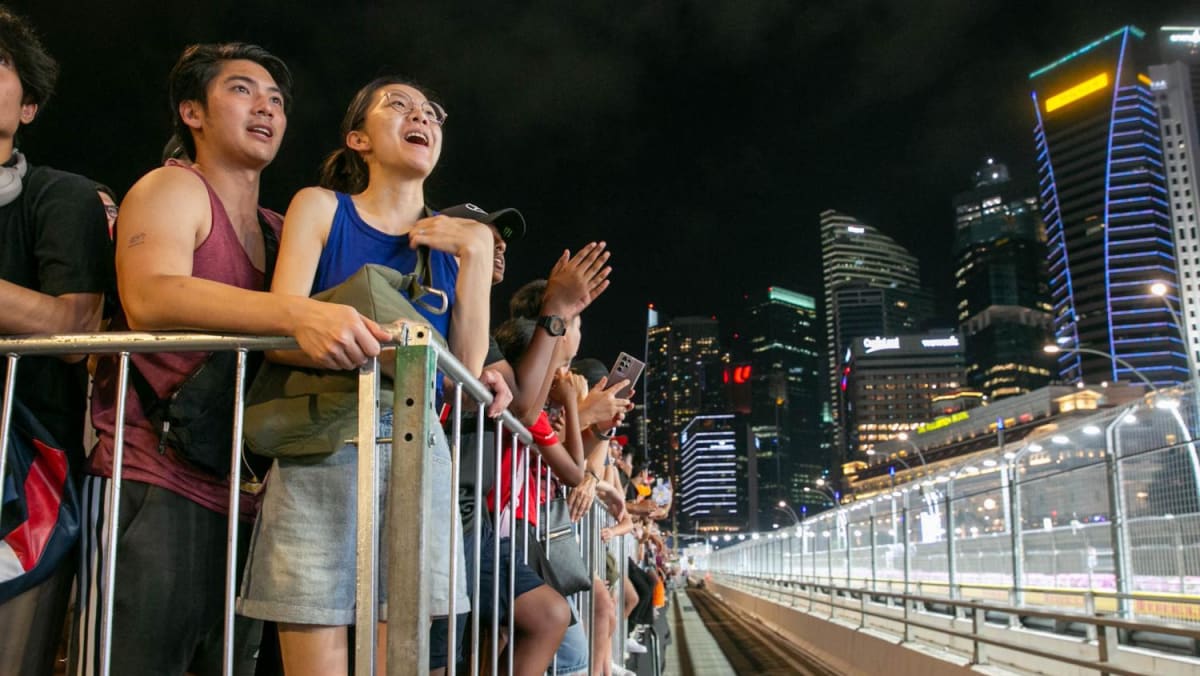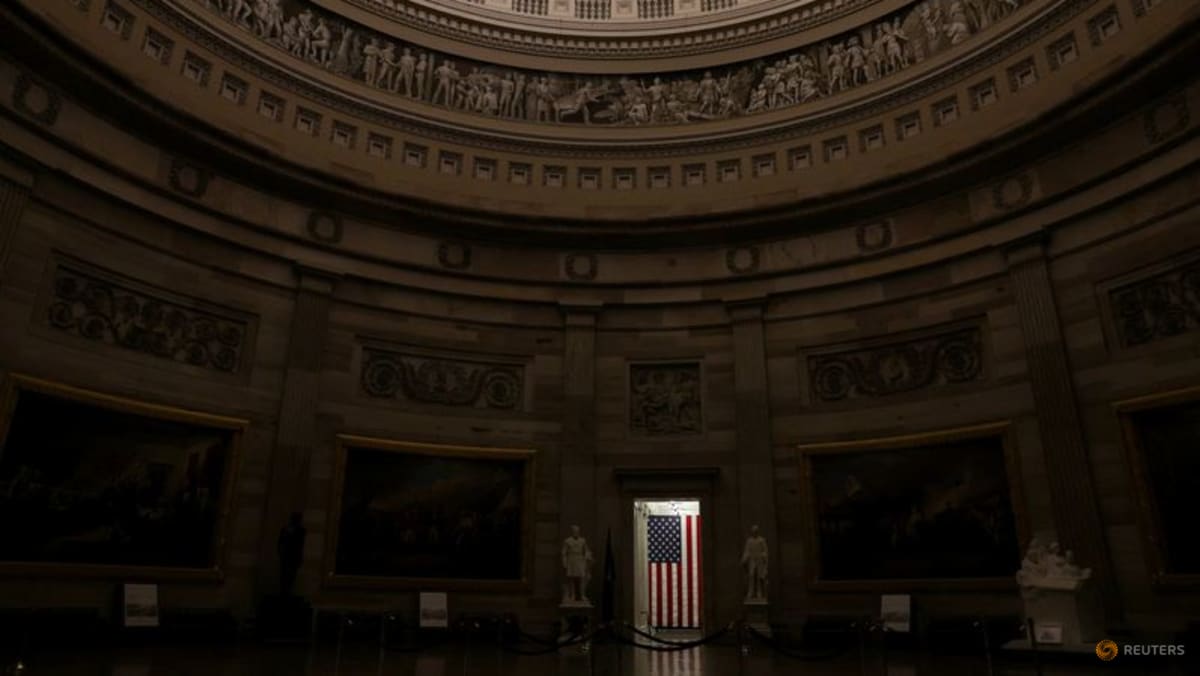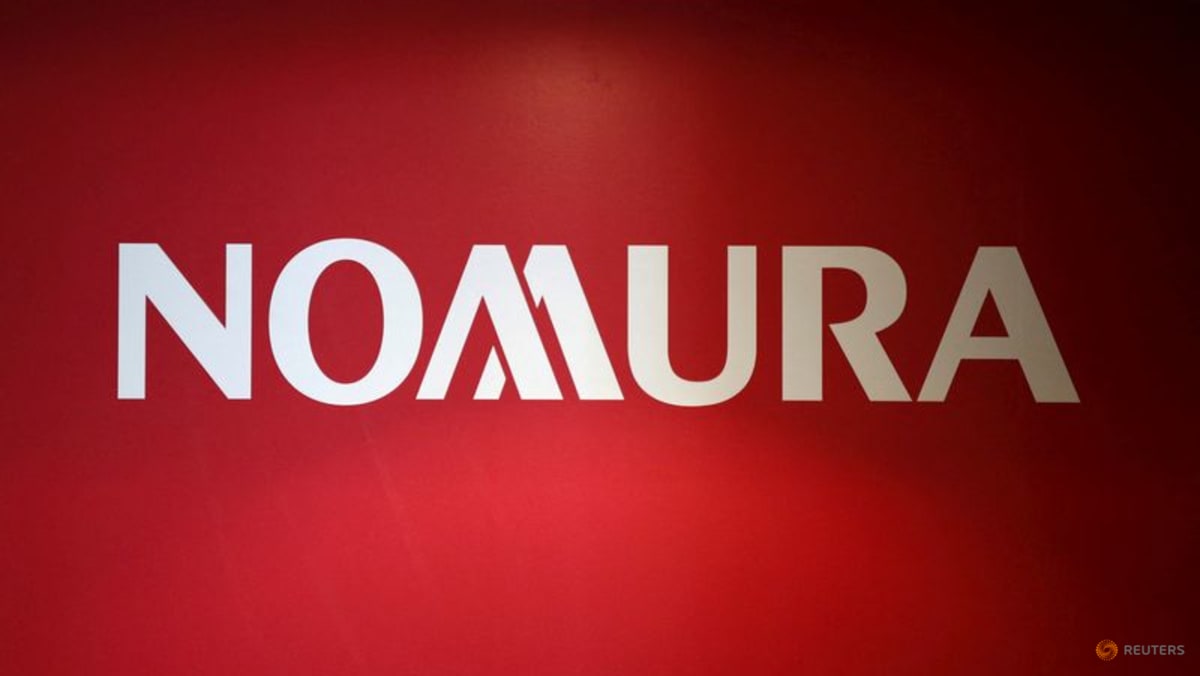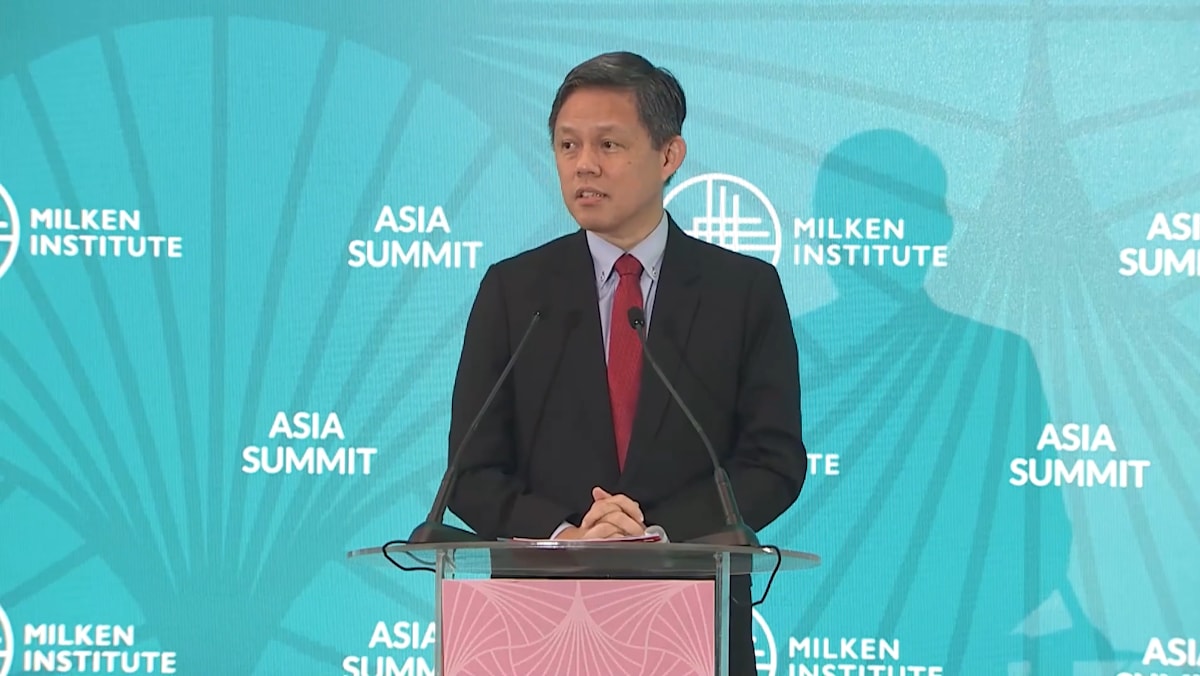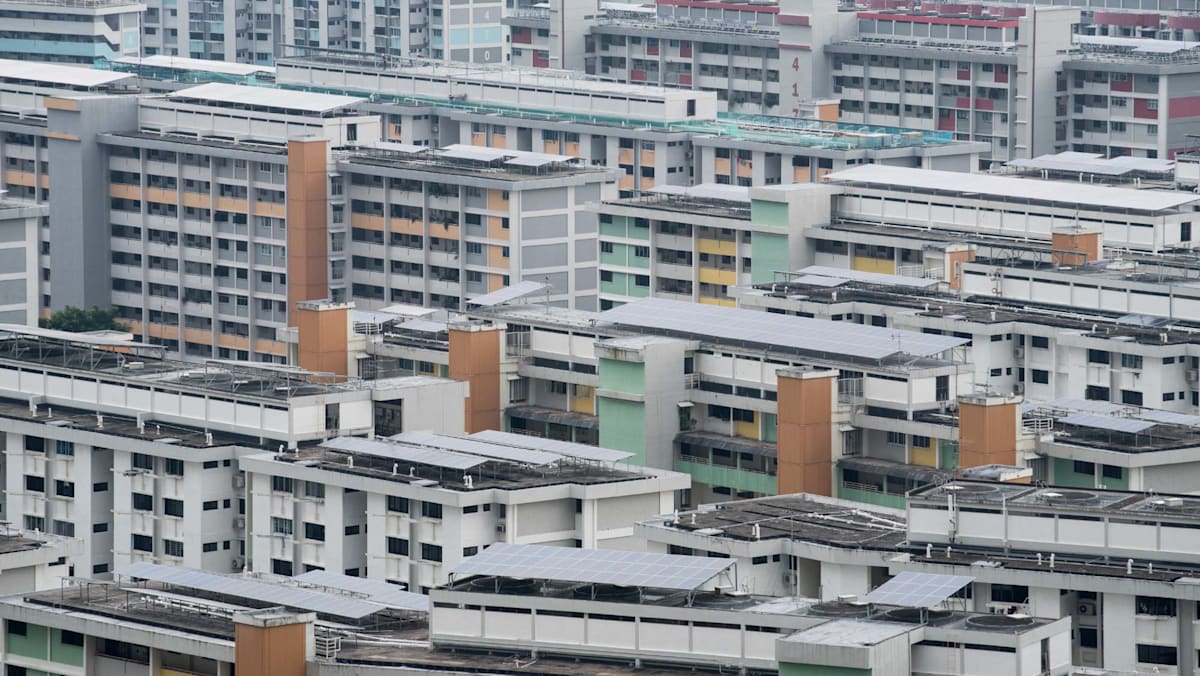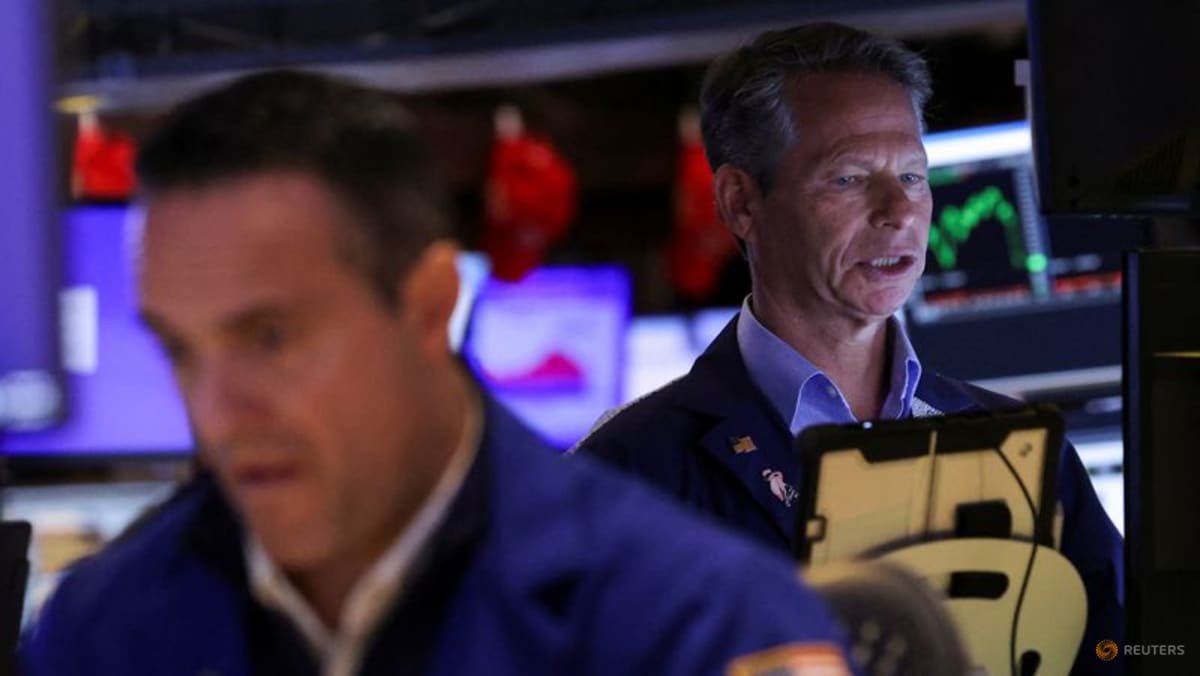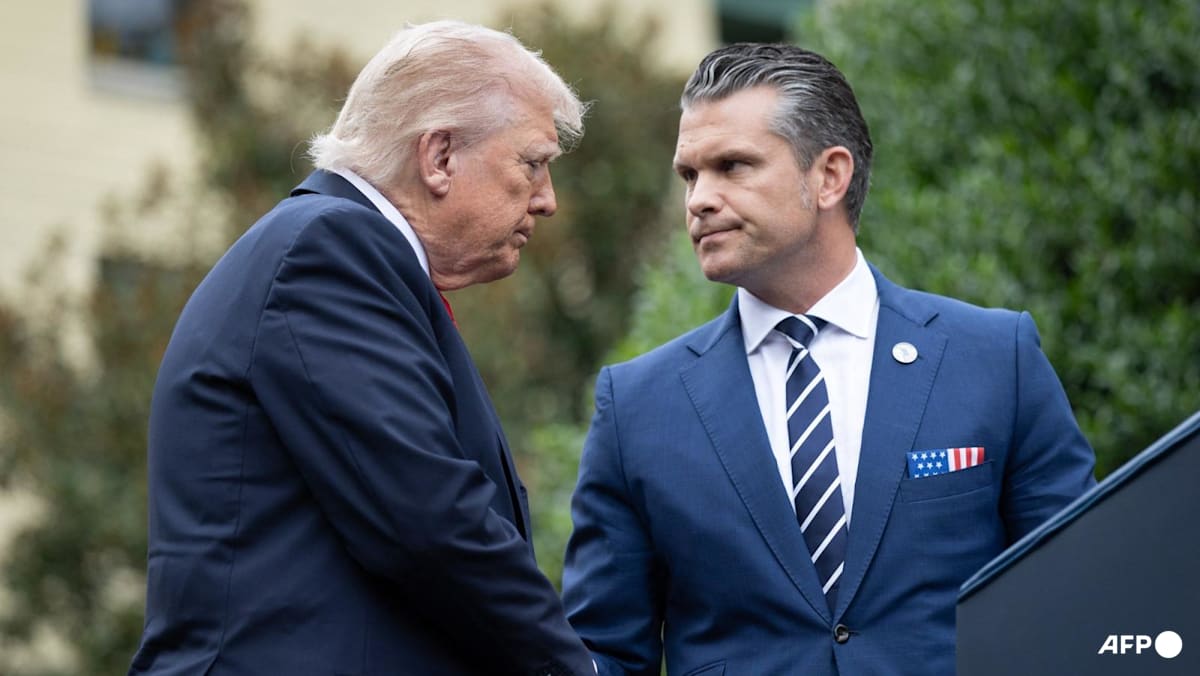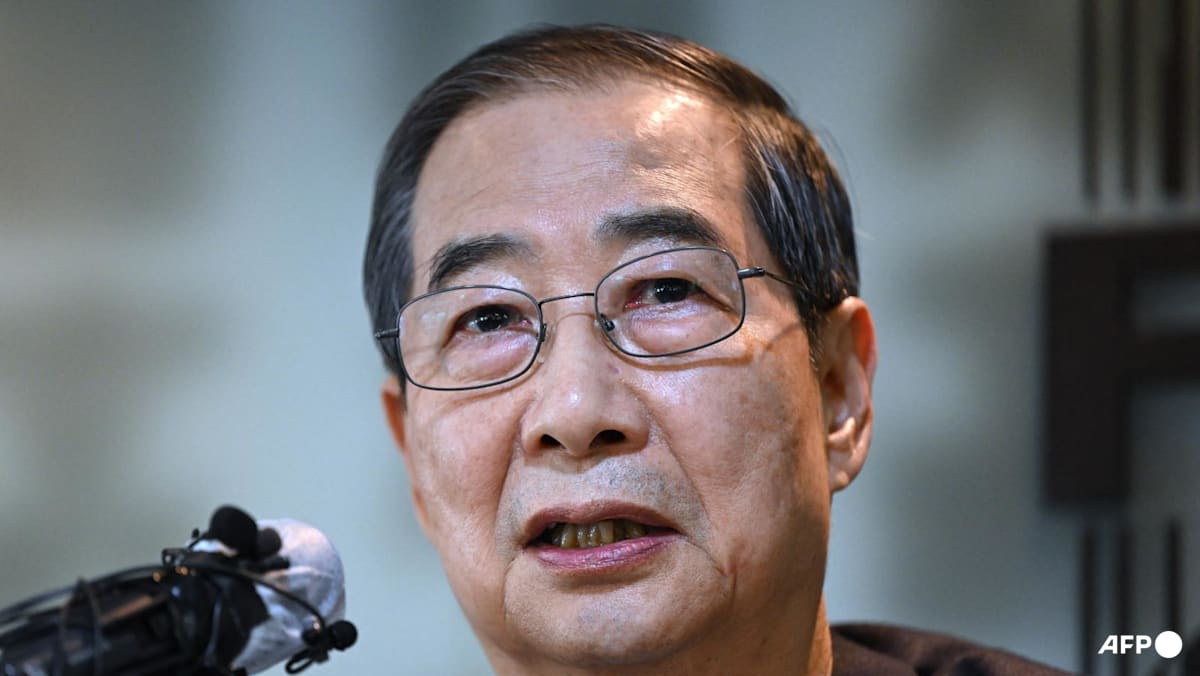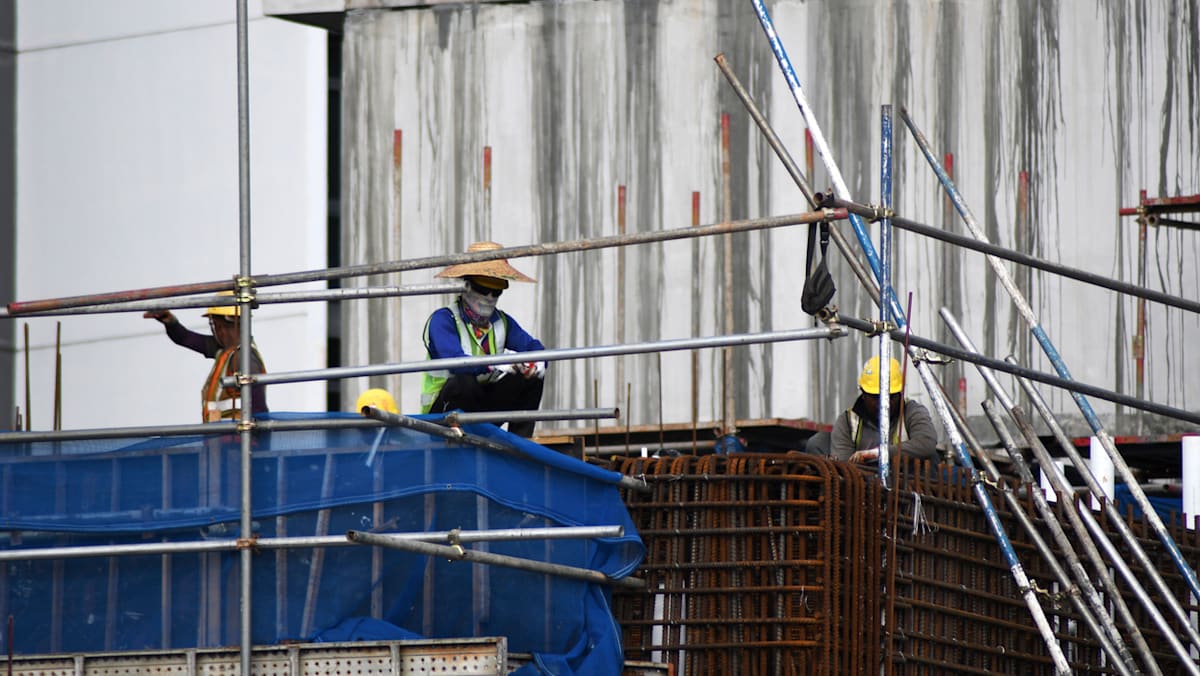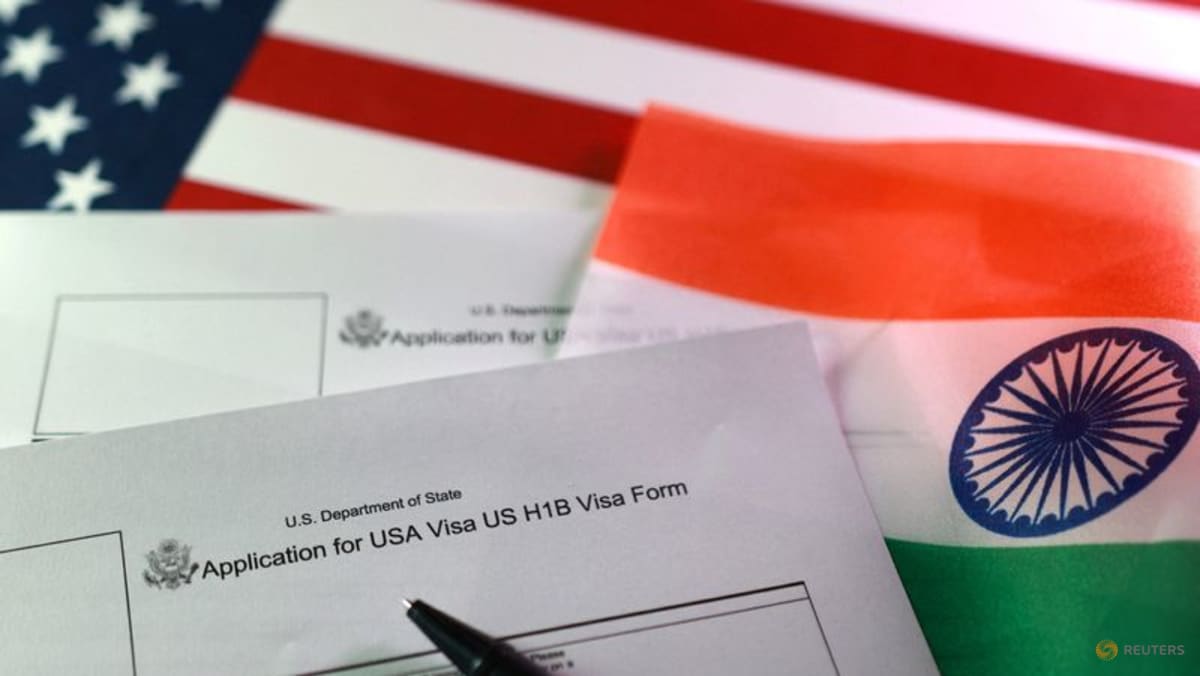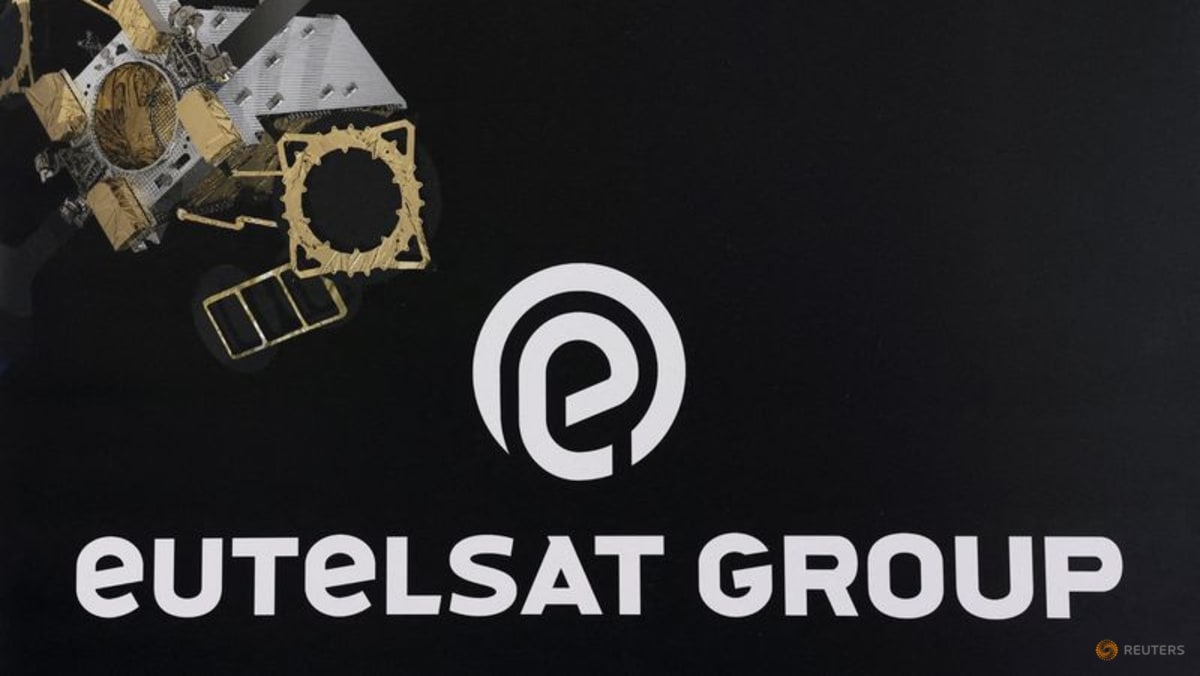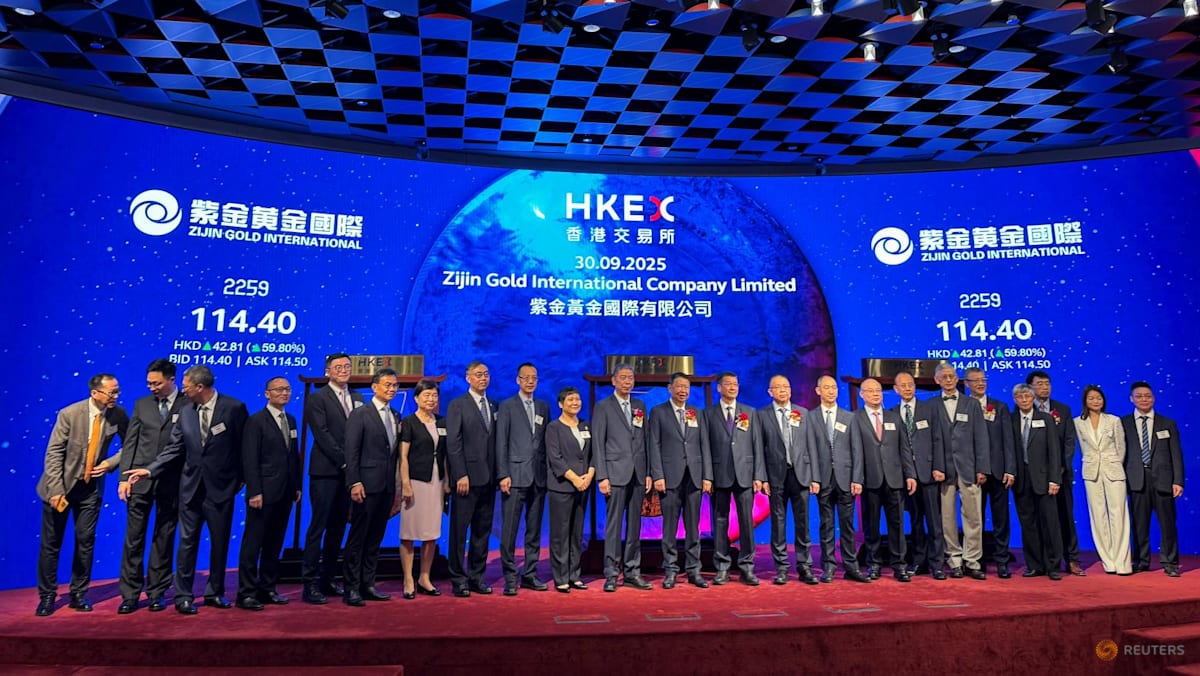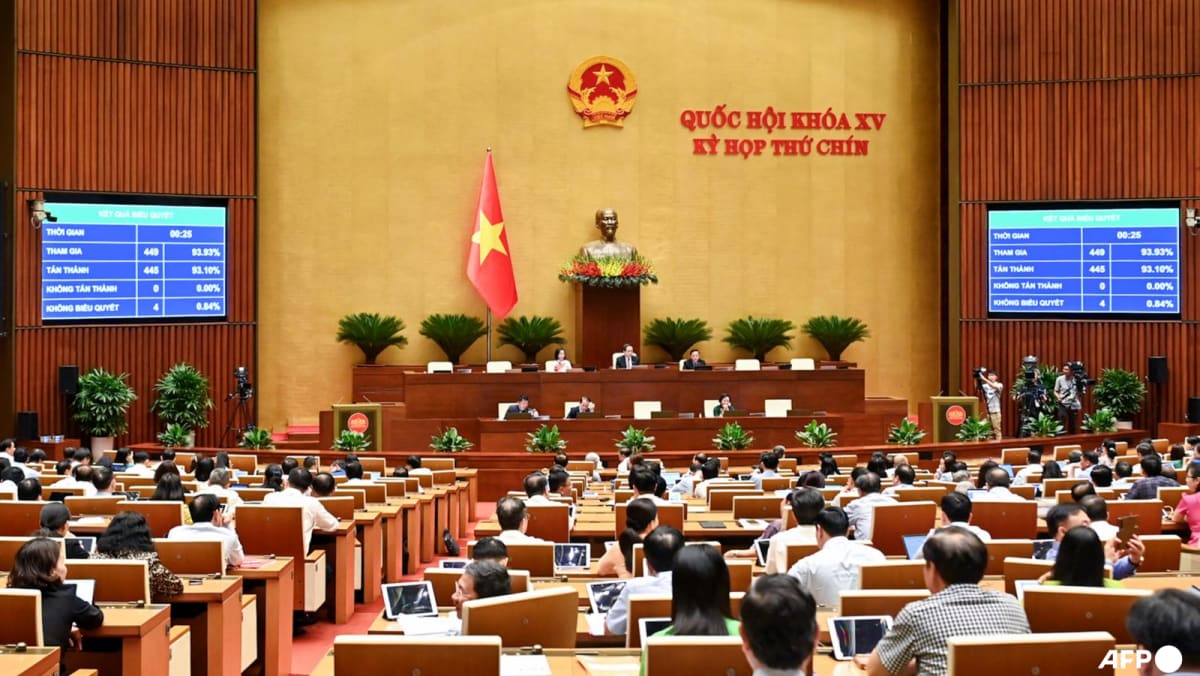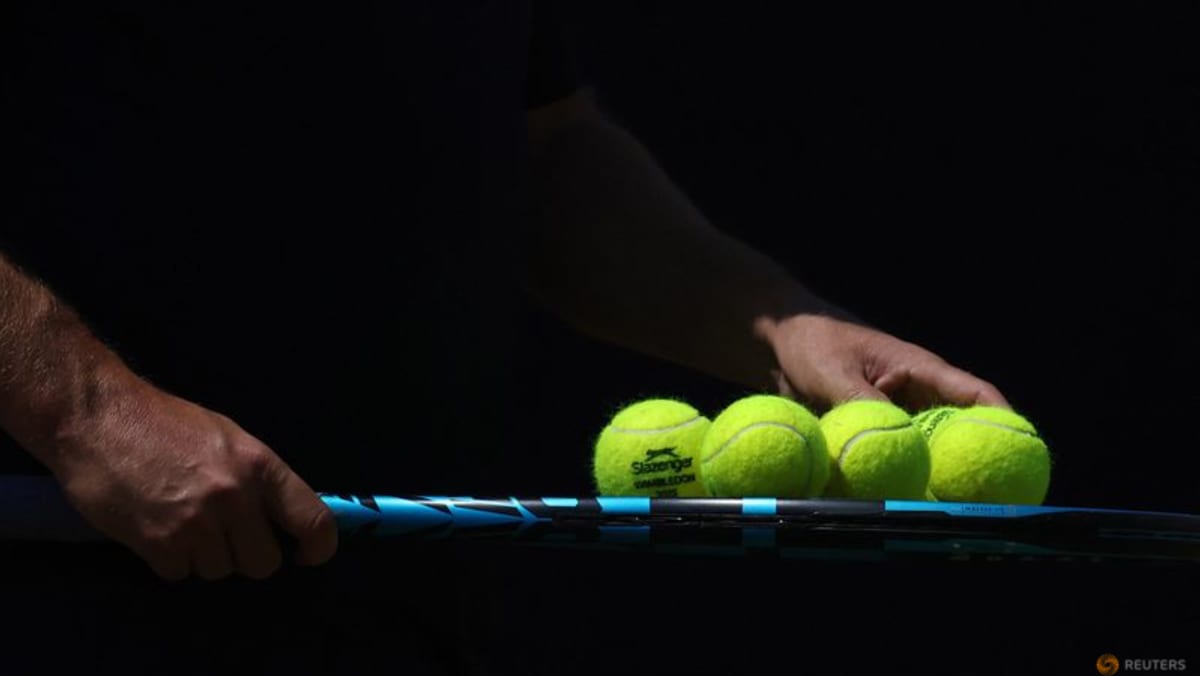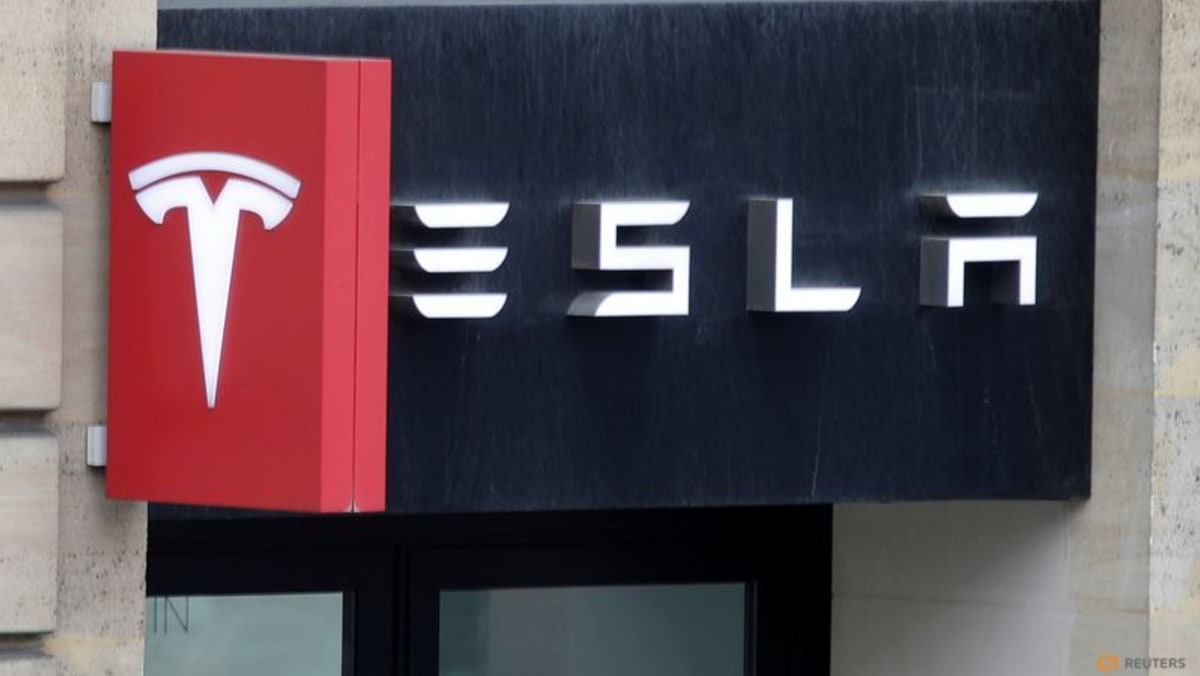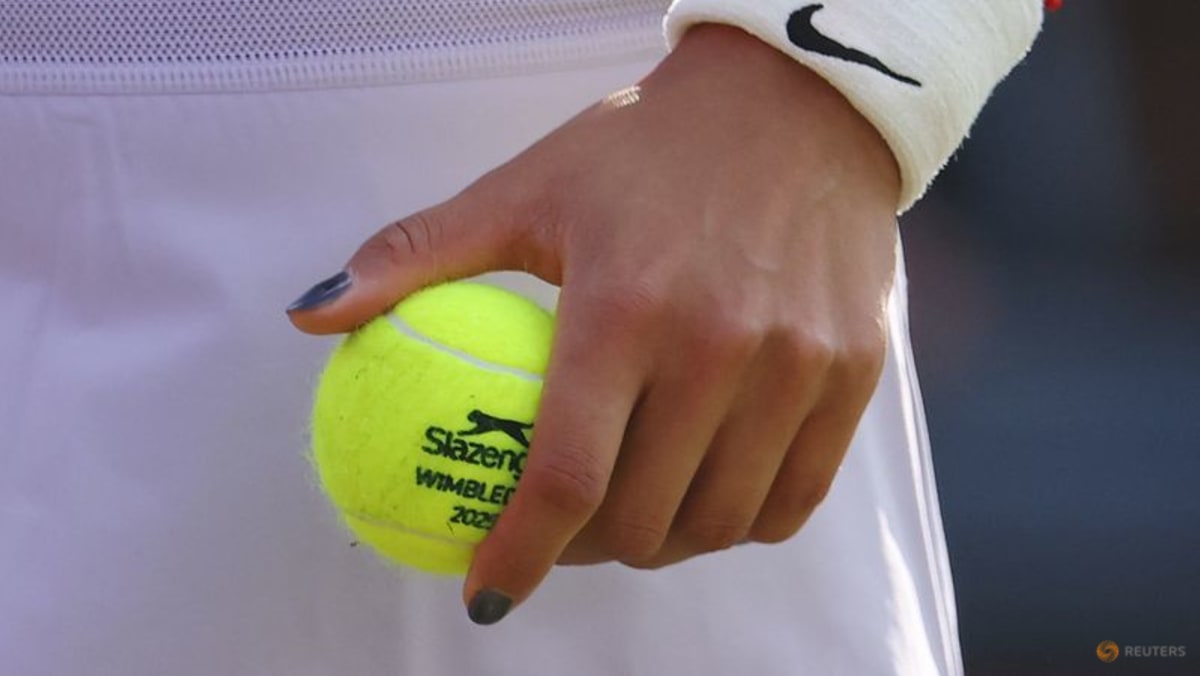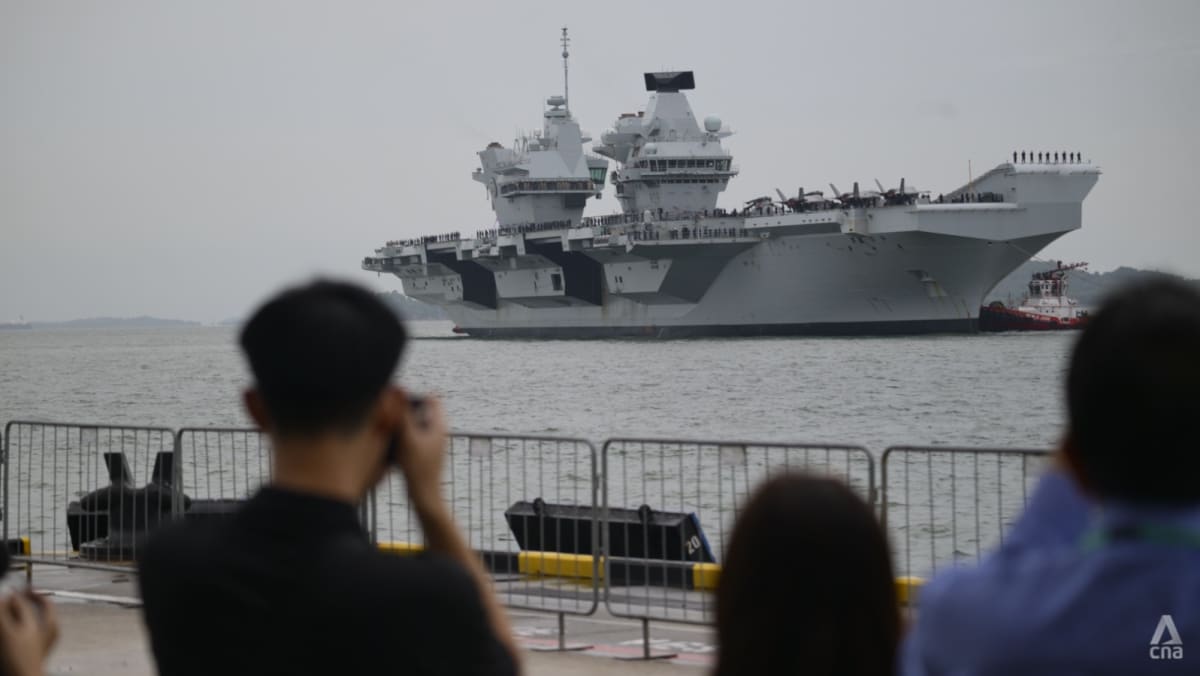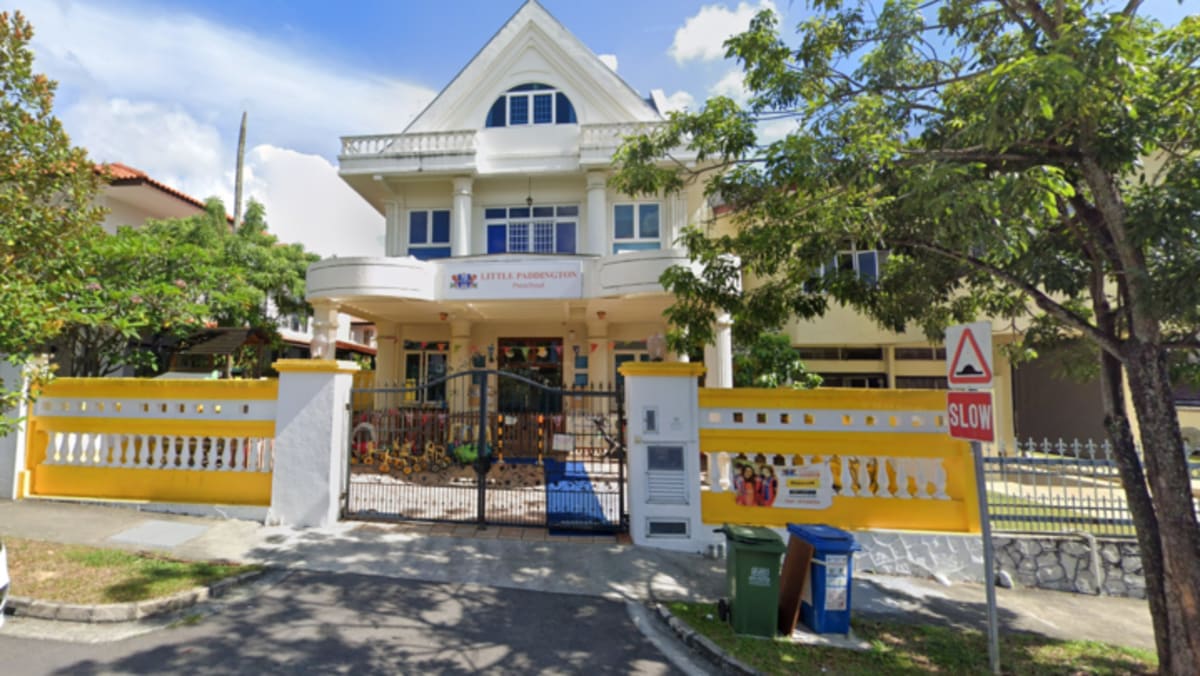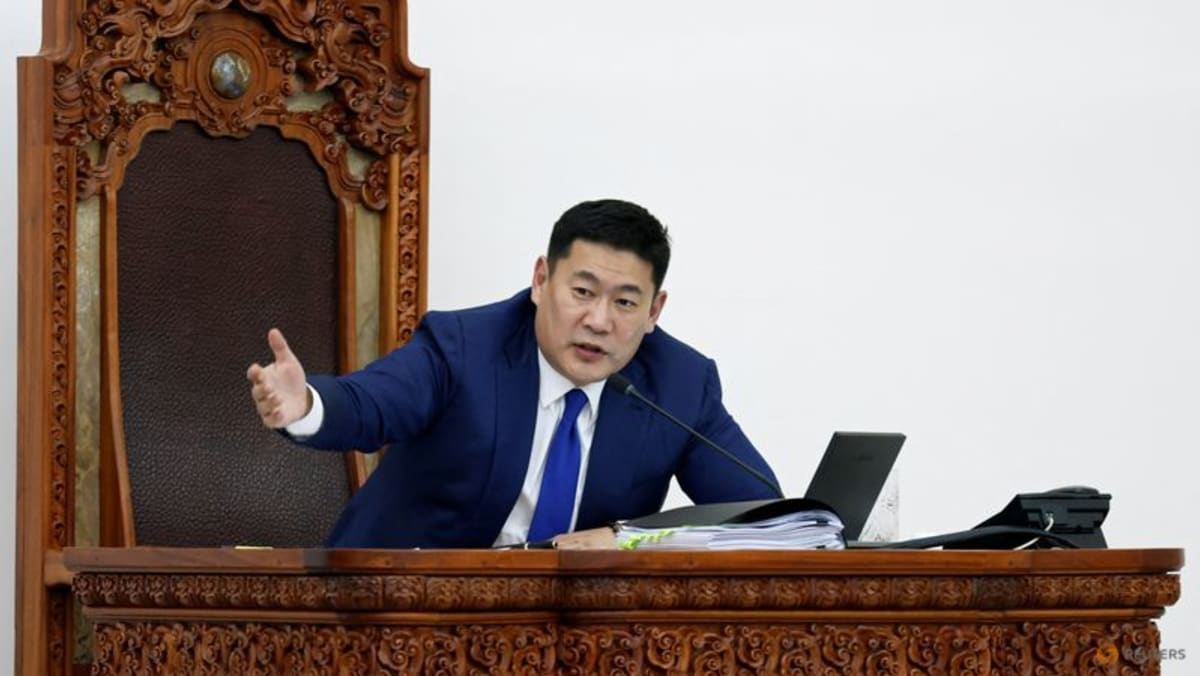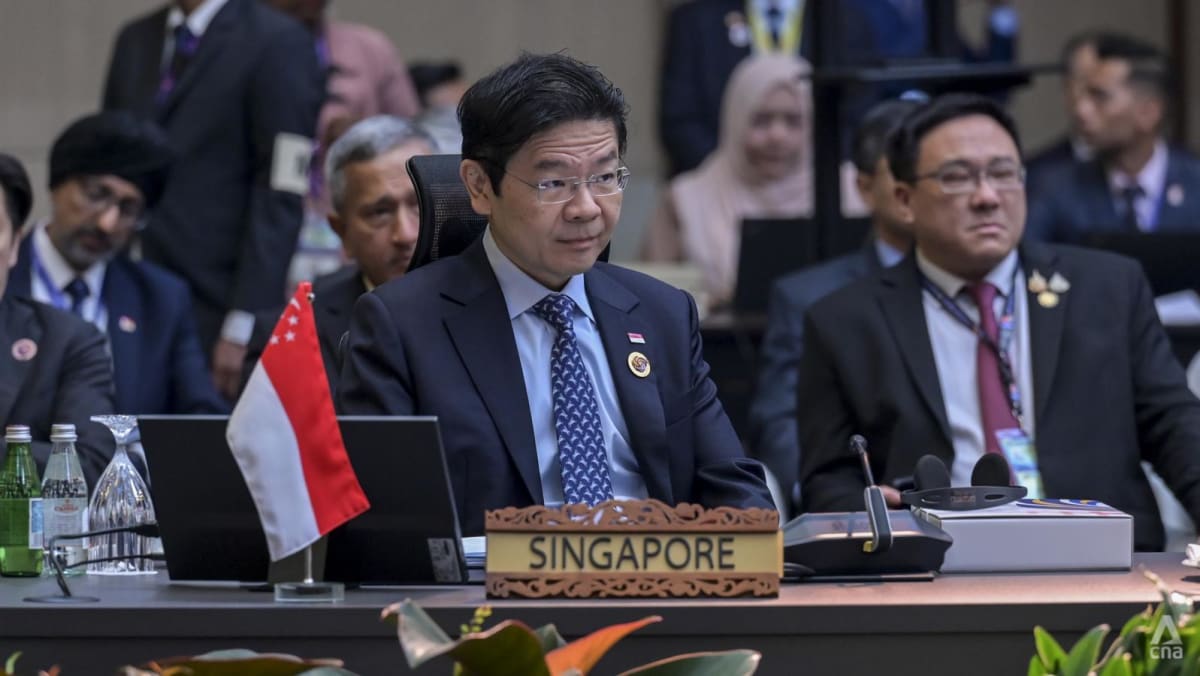YIWU, Zhejiang: The Yiwu International Trade Market is the largest small commodity wholesale market worldwide.
The sprawling bazaar in the eastern Chinese province of Zhejiang houses around 75,000 shops that sell and export virtually every low-cost consumer item available, including fashion apparel, toys, home goods, electronics, beauty merchandise and sport equipment.
Despite trade tensions stemming from the United States’ tariffs on Chinese goods, there appears to be somewhat little impact on traders in the massive export hub.
International shoppers continue to throng the market, negotiating trades in a variety of languages.
US CLIENTS SENT SCRAMBLING
Businesswoman Zhao Huanhuan, for instance, runs a shop there selling Christmas ornaments from her family’s factory.
Her store is just one of the hundreds of suppliers in the vicinity dedicated to producing goods for the Dec 25 holiday. The city is a powerhouse for Christmas decorations, manufacturing about two-thirds of such products that are sold globally.
Zhao’s American clients had continued purchasing her merchandise during US President Donald Trump’s previous term, when he first enacted tariffs on Chinese goods in 2018.
But when duties hit as high as 145 per cent in the thick of tit-for-tat escalations in April, her customers requested to pause their orders.
Trump has since postponed the implementation of his sweeping tariffs until Aug 1 to allow for negotiations with trading partners.
“Around May, our American clients asked for their goods to be shipped urgently and to rush the orders. They wanted to get this batch of goods to the US within these 90 days of tariff truce,” said Zhao.
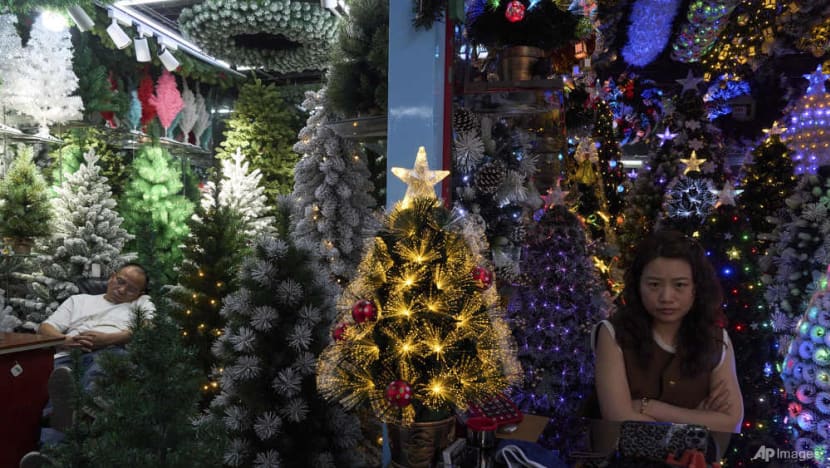 Vendors wait for customers at a Christmas tree store at the Yiwu International Trade Market in Yiwu, eastern China's Zhejiang province Apr 10, 2025. (Photo: AP Photo/Ng Han Guan)
Vendors wait for customers at a Christmas tree store at the Yiwu International Trade Market in Yiwu, eastern China's Zhejiang province Apr 10, 2025. (Photo: AP Photo/Ng Han Guan)
But for the merchant, the scramble was an exception rather than the norm. In recent years, her main markets have shifted.
“In the past two to three years, our markets have been in South America, with Brazil, Mexico, Argentina and Chile growing fairly quickly and they are quite stable. This year, the Russian market is also relatively strong,” she said.
DIVERSIFYING MARKETS
Zhao’s case reflects trends at Yiwu and the broader Chinese export market. Many traders have diversified to mitigate the risks of trading directly with US clients.
Last year, the city’s total exports reached 589 billion yuan (US$82 billion), an on-year jump of 17.7 per cent, according to Yiwu customs data. The US accounted for less than 15 per cent of the exports.
Businesses are also pivoting from manufacturing outsourced parts and components to building their own brands and producing homegrown products.
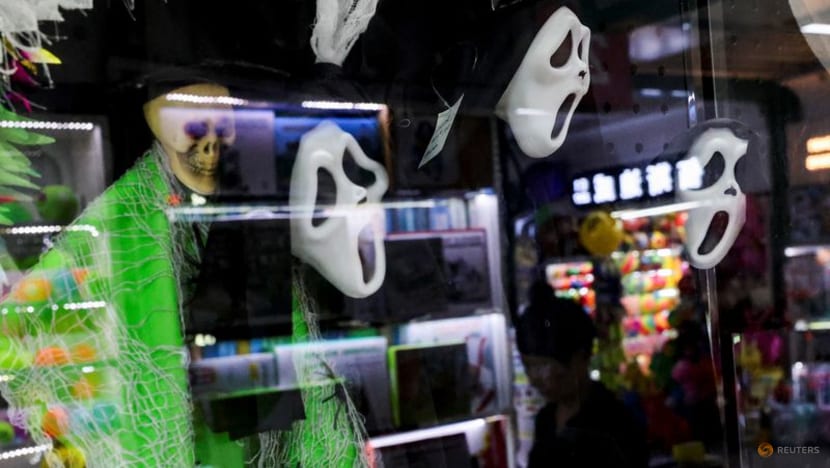 Halloween products are displayed for sale at the Yiwu International Trade City in Zhejiang province, China May 14, 2025. (Photo: REUTERS/Go Nakamura)
Halloween products are displayed for sale at the Yiwu International Trade City in Zhejiang province, China May 14, 2025. (Photo: REUTERS/Go Nakamura)
This is because contract manufacturers are one of the hardest-hit groups at Yiwu in the current trade war. Some products are stamped with clients’ names and logos, meaning contractors will not be able to sell them elsewhere if customers suddenly pull out.
“If the trade war doesn't open up … production is stalled. For some small and medium-sized enterprises ... it limits their options. If the two countries can't negotiate well, the SMEs will definitely go bankrupt,” said Zhao.
Lawrence Long, an electric scooter trader at Yiwu, said: “Before, China mainly was original equipment manufacturers (OEM) for the US or produced their brands. Going forward, we will be building our own brands and exporting them globally.”
OTHER ISSUES PERSIST
While market diversification helps, businesses said there are still fears that the US-China rivalry can spill over in other ways.
Zhao’s Latin American clients, for example, are wary about the sale of Hong Kong conglomerate CK Hutchison’s ports around the globe to a US-European consortium.
"The shipping costs will then be dictated by the Americans, who are not a stickler for rules. Our clients in South America are afraid the rising costs may upend their businesses,” she said.
Despite looming challenges, some traders are confident that Yiwu will pull through and instead, US importers and buyers will suffer the brunt of the tariffs.
Long said Yiwu's advantages are in the speed of product updates, cost control, as well as strong support through the entire supply chain.
"It's impossible for them to produce (like us) in the US. Their production costs, just the labour part, would make it impossible to achieve such cost control. They don't have this complete industrial chain ecosystem and skills,” he said.
“If the US loses Yiwu, then they don't need to celebrate Christmas anymore because 70 per cent of their (artificial) Christmas trees are imported from here. So they will definitely still purchase. It's just that their own costs must increase."
Observers say that even if Trump continues to slap tariffs on Chinese goods, chances are high that products from Yiwu would still end up on US shelves - just at higher prices for consumers.

